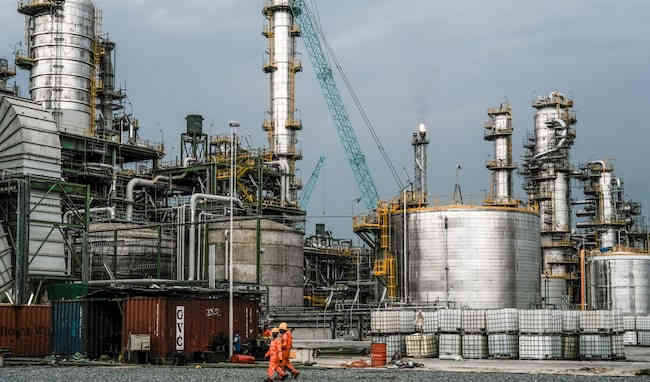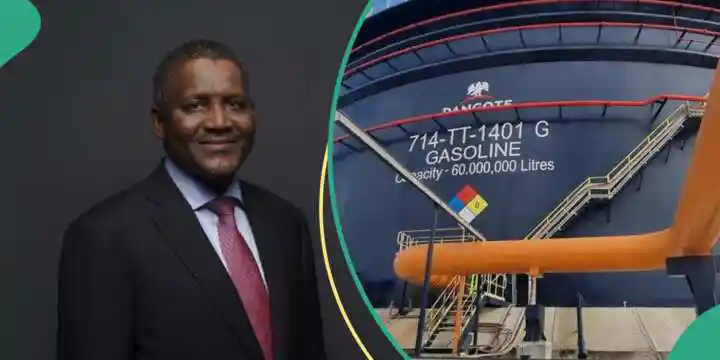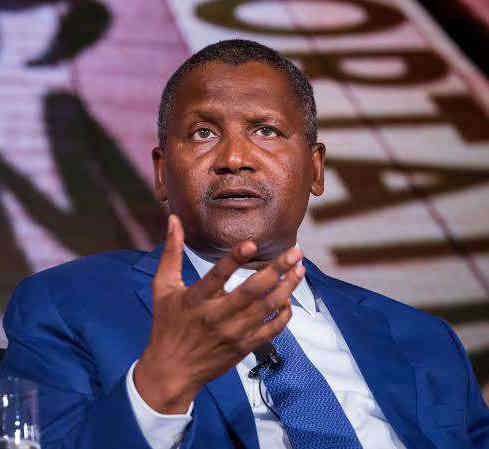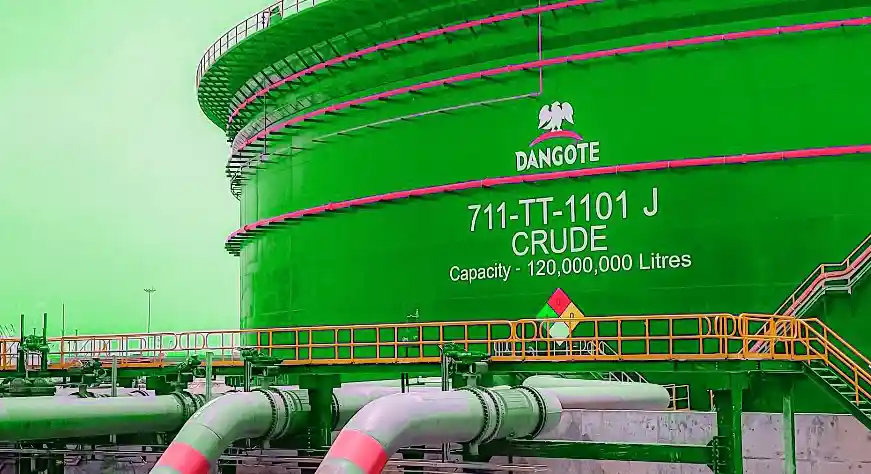The Dangote Petroleum Refinery, one of Africa’s largest refinery projects, is currently in the process of importing crude oil as it gears up for its commencement of operations in the coming weeks. Devakumar Edwin, the Executive Director of Dangote Group, shared this development in an interview with S&P Global Commodity Insights.
While the Nigerian National Petroleum Company Limited (NNPCL) typically handles crude oil trading for Nigeria, Edwin explained that the NNPCL had allocated its crude to other entities. Although Edwin did not specify which entities are receiving the crude, it was previously disclosed that the NNPCL entered into a $3 billion crude oil-for-loan deal with the African Export-Import Bank.
NNPC sources further revealed that the company has entered into crude oil contracts with various entities, causing delays in meeting Dangote’s requirements. However, efforts are underway to ensure that Dangote’s crude oil needs are met by November.
Edwin clarified that the Dangote refinery’s temporary importation of crude oil is due to the NNPCL’s prior commitments and emphasized that the refinery will begin receiving supplies from the NNPCL in November.
The Dangote Refinery, which is set to become one of the largest single-train refineries globally, plans to produce up to 370,000 barrels per day of crude. This production will yield Automotive Gas Oil (diesel) and jet fuel starting in October 2023. Additionally, the refinery will produce Premium Motor Spirit (petrol) by November 30, 2023.
Read Also Bandits invade Kebbi, Sokoto, sack 7 villages
The arrival of Dangote Refinery into full operation is expected to have a significant impact on the pricing of diesel and jet fuel in Nigeria, making it more affordable for consumers. The refinery aims to gradually increase petrol production and reach an impressive 650,000 barrels per day by November.
Edwin assured that the refinery is ready to receive crude, saying, “Right now, I’m ready to receive crude. We are just waiting for the first vessel. And so, as soon as it comes in, we can start.”
Read Also Victory for Atiku as U.S. Court Orders Chicago State University to Release Tinubu’s Academic Records
He explained the delay was caused by the NNPCL’s commitment of crude oil to another entity on a forward basis. However, this delay is temporary, and the refinery will exclusively use Nigerian crude oil by November 2023.
The Dangote Refinery is expected to play a crucial role in providing a consistent supply of environmentally-friendly refined products and bringing foreign exchange into Nigeria. It aims to address fuel supply challenges in West Africa, especially following Nigeria’s removal of fuel subsidies, which led to price fluctuations and an illicit gasoline market.
The refinery’s revenues will be reinvested to support further development initiatives, demonstrating Aliko Dangote’s commitment to Nigeria’s economic growth.
Oil marketers have expressed optimism that the refinery’s production will lead to a reduction in the prices of diesel and jet fuel, ultimately benefitting the Nigerian economy and consumers. The commencement of production by the Dangote Refinery is eagerly awaited by various stakeholders.
As the Dangote Refinery prepares to become fully operational, it will bring significant changes to Nigeria’s petroleum industry, marking a significant milestone in the country’s efforts to become more self-reliant in petroleum product production.






